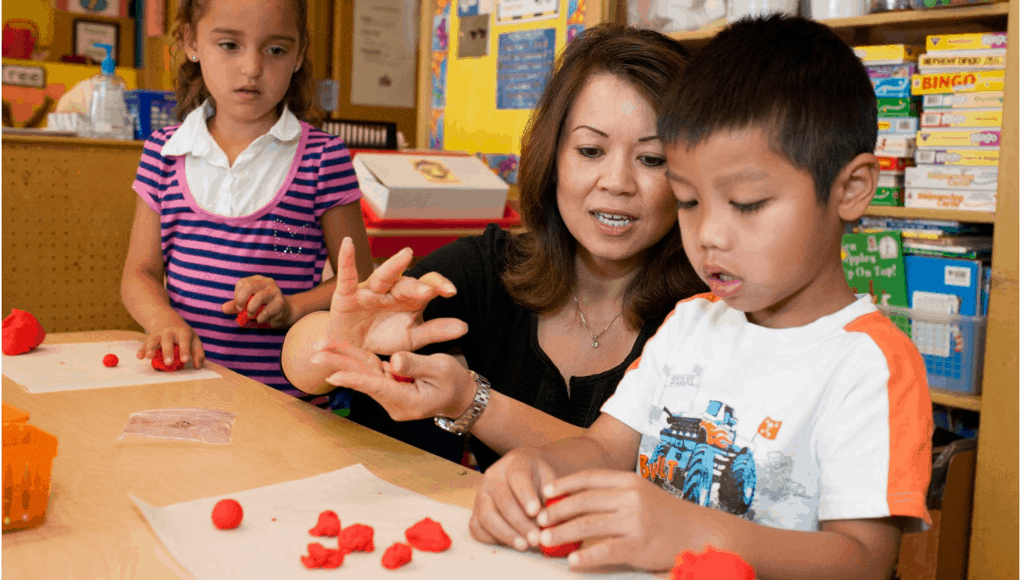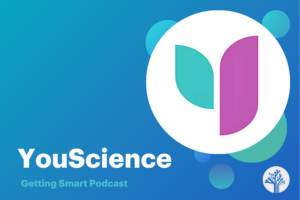The Results Are In: Kindergarten Transition Programs Work

By Philip dela Houssaye and Fernando Madrid
As educators, we know that starting kindergarten off on the right foot is one of the strongest indicators of a child’s success in school.
In our district, Portland Public Schools (PPS) in Oregon, we recognized that many of our kindergarteners weren’t entering school ready to learn, and we wanted to do something about it—but not just anything. With so many programs out there, we wanted to make sure we did something that works and would make a difference in our district, but that was also cost-effective.
Our district’s solution? The Early Kindergarten Transition (EKT) program, a targeted intervention that helps incoming kindergarteners begin school on common ground and ready for success, regardless of their preschool experience or background.
 Some of our students may not have had a traditional preschool experience or perhaps faced some challenges in Head Start. Some are from families who don’t speak English as a first language and who have had different educational experiences. Often, on the first day of school, students walk into their classroom without an understanding of how the school day works or what they’ll be experiencing with their new classmates and teacher.
Some of our students may not have had a traditional preschool experience or perhaps faced some challenges in Head Start. Some are from families who don’t speak English as a first language and who have had different educational experiences. Often, on the first day of school, students walk into their classroom without an understanding of how the school day works or what they’ll be experiencing with their new classmates and teacher.
 We saw an opportunity to support these students and families as they prepare for kindergarten by giving them the tools and skills they need to be ready to learn. Now in 13 district schools, the EKT program is a free, three-week program that provides sessions for both students and parents during the summer and seeks to increase parental involvement, reduce chronic absenteeism and enhance the development of early literacy skills. These are all indicators of long-term academic success.
We saw an opportunity to support these students and families as they prepare for kindergarten by giving them the tools and skills they need to be ready to learn. Now in 13 district schools, the EKT program is a free, three-week program that provides sessions for both students and parents during the summer and seeks to increase parental involvement, reduce chronic absenteeism and enhance the development of early literacy skills. These are all indicators of long-term academic success.
The best part about the EKT program? It really works.
 The program was recently the focus of a new five-year study conducted by the Multnomah County Partnership for Education Research (MCPER), led by the University of Portland School of Education and the not-for-profit educational services organization NWEA.
The program was recently the focus of a new five-year study conducted by the Multnomah County Partnership for Education Research (MCPER), led by the University of Portland School of Education and the not-for-profit educational services organization NWEA.
Following more than 450 students, the study provided our district with valuable information about the effectiveness of the EKT program. The findings show that EKT students are more likely than their peers to have higher attendance rates and to meet early literacy goals—and these trends continued over time in kindergarten and in later grades.
 As school staff, we see the benefits of the EKT program every day, and we know there are many schools and districts out there like ours who are looking for impactful, proven ways to support all students.
As school staff, we see the benefits of the EKT program every day, and we know there are many schools and districts out there like ours who are looking for impactful, proven ways to support all students.
We would like to share four key takeaways from the EKT program with fellow educators and school and district leaders who may be considering how to support students and families who may struggle with the transition into kindergarten.
1. Work with community organizations to reach and engage parents
When families aren’t engaged with their local schools in a traditional sense, it’s important to find ways to reach them where they are comfortable. To build awareness about the EKT program, we utilize a number of different strategies to engage all families who can benefit from it.
 PPS partners with community-based organizations and the Multnomah County Library to recruit families who are involved in their programming. We also post flyers throughout neighborhoods, run radio ads, make phone calls and send text messages. One of our most effective outreach methods is encouraging current and former EKT families to invite other parents to get involved and share what they have learned through the program.
PPS partners with community-based organizations and the Multnomah County Library to recruit families who are involved in their programming. We also post flyers throughout neighborhoods, run radio ads, make phone calls and send text messages. One of our most effective outreach methods is encouraging current and former EKT families to invite other parents to get involved and share what they have learned through the program.
2. Focus on student behaviors, school routines and special needs that support long-term success in the classroom
The EKT program helps incoming kindergarteners get used to their new school environment before the year begins to help them feel less anxious about school and get to know their peers. At the summer sessions, students practice classroom routines with teachers so they are familiar with school bells, switching activities and lining up after recess. When kids arrive on the first day of school, they already know what they’re walking into, and we see this lead to increased confidence and a greater sense of independence from the first day of school and throughout the year.
 The EKT program also provides teachers with an opportunity to better and more deeply understand each student’s learning needs and styles before the beginning of the school year. While this is critical for the success of all students, it’s especially important for students with special needs and creates a supportive environment where students can be successful.
The EKT program also provides teachers with an opportunity to better and more deeply understand each student’s learning needs and styles before the beginning of the school year. While this is critical for the success of all students, it’s especially important for students with special needs and creates a supportive environment where students can be successful.
3. Teach parents how to continue the learning process at home and about the school experience
The EKT program is as important for parents as it is for their children. As students experience what learning inside the classroom looks like, parents understand how they can continue to support their child at home. For example, we share that taking time every day at home for reading or storytelling is an important way to help kids develop key language and literacy skills, support healthy brain development and build upon what they’re learning in the classroom.
 Additionally, the EKT program welcomes families into an inclusive community, not just a school building. Since many EKT families are non-English speakers, we have a translator at every EKT meeting, and they often continue to work with our families throughout the year. Parents and families also leave the summer program having established relationships with school staff and a support network to whom they can reach out when a problem or question arises—even if they speak a different language.
Additionally, the EKT program welcomes families into an inclusive community, not just a school building. Since many EKT families are non-English speakers, we have a translator at every EKT meeting, and they often continue to work with our families throughout the year. Parents and families also leave the summer program having established relationships with school staff and a support network to whom they can reach out when a problem or question arises—even if they speak a different language.
4. Evaluate your efforts so you can expand and refine your program
Our district’s partnership with researchers in the Portland community generates the data we need to best serve our students and families and stay accountable to increase student learning and equity, such as how many of our EKT students meet literacy benchmarks and regularly attend class.
 School and district leaders are able to use this information to make informed decisions about continuing and growing effective initiatives. For program staff and educators like us, this research validates our everyday work in the classroom and lets us know that what we’re doing is really working—and having a long-term, positive impact on the students and families we work with and care about.
School and district leaders are able to use this information to make informed decisions about continuing and growing effective initiatives. For program staff and educators like us, this research validates our everyday work in the classroom and lets us know that what we’re doing is really working—and having a long-term, positive impact on the students and families we work with and care about.
For more, see:
- Building a Community of Readers: A Collective Impact Model
- Why Early Childhood Education Matters Now More than Ever
- Early Learning as a Strategy for Achieving Equity
Philip dela Houssaye is a kindergarten teacher and lead EKT teacher at Lee Elementary School in Portland. Follow them on Twitter: @PPSConnect
Fernando Madrid is a community agent and EKT family facilitator at Rigler Elementary School in Portland. Follow them on Twitter: @RiglerSchoolOR
Stay in-the-know with all things EdTech and innovations in learning by signing up to receive the weekly Smart Update.







0 Comments
Leave a Comment
Your email address will not be published. All fields are required.